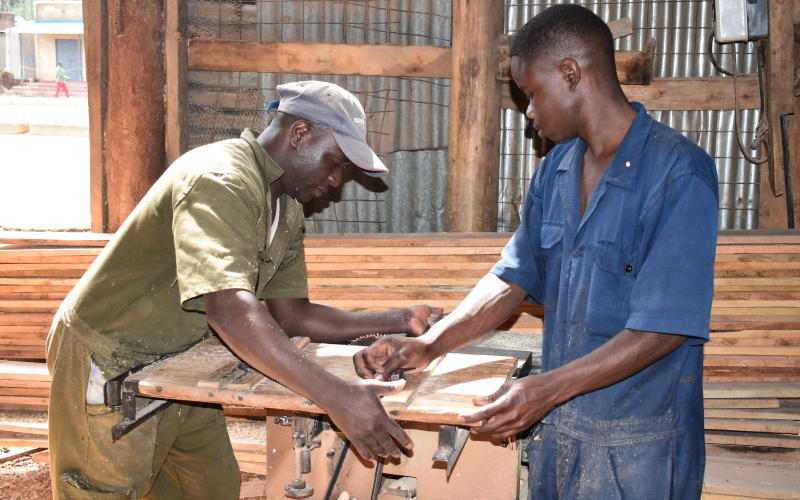×
The Standard e-Paper
Smart Minds Choose Us

Elvis Luhaya (right) and June Maloba at their workshop in Lurambi, Kakamega County. [Mumo Munuve, Standard]
The stage is now set to award academic certificates to the first lot of Kenyans who have over years acquired hands-on skills without formal training.